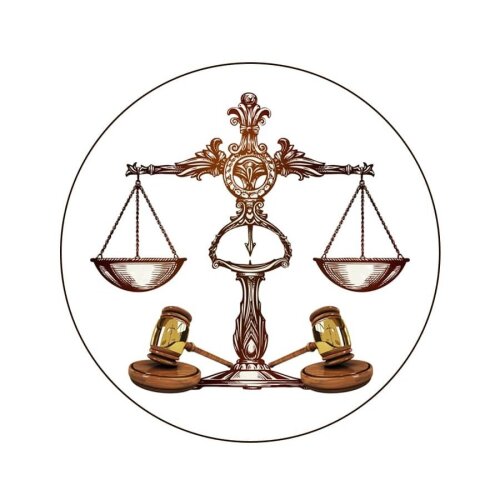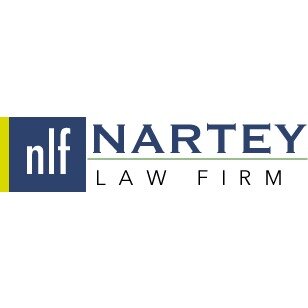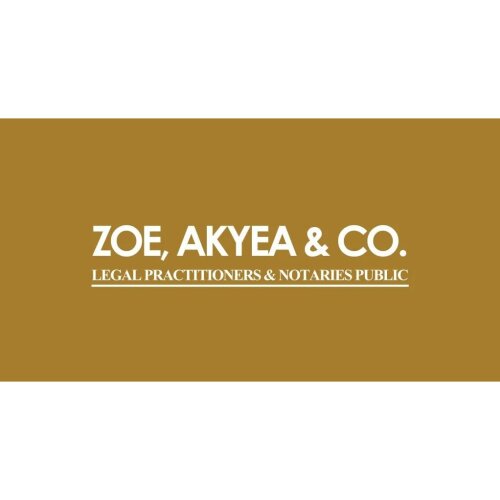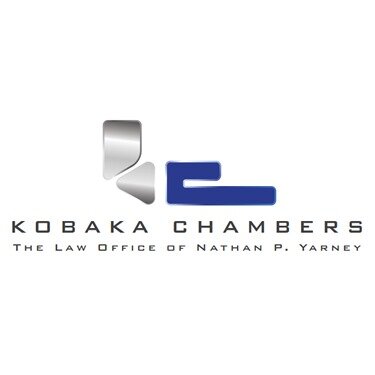Best Inheritance Law Lawyers in Accra
Share your needs with us, get contacted by law firms.
Free. Takes 2 min.
List of the best lawyers in Accra, Ghana
1. About Inheritance Law in Accra, Ghana
Inheritance law in Accra sits at the intersection of statutory law and customary practices. Statutory rules govern wills, probate, and estate administration, while customary norms influence many family and land inheritance situations in daily life. In practice, many Accra residents navigate both systems when a loved one dies or when land or family property is at stake.
In Accra, a person who dies testate may have a will that directs the distribution of assets, while someone who dies intestate relies on statutory and customary frameworks to determine heirs. The city hosts the Probate Registry and courts that handle grants of probate, letters of administration, and estate distributions. Navigating these processes often requires careful legal planning and timely filings.
2. Why You May Need a Lawyer
- A relative dies with a will but beneficiaries dispute its validity or interpretation. A lawyer helps prove the will's validity, identify executors, and resolve ambiguities in Accra.
- The deceased owned real estate in Accra shared among several family members. An attorney can help obtain a grant of probate or administration and manage land distribution with the Lands Commission and Registry of Deeds.
- You are an heir and suspect debts or liabilities reduce the estate before distribution. A solicitor can quantify debts, protect creditor claims, and ensure proper estate administration.
- No will exists and there are multiple spouses or dependants. A legal counsel can guide intestate succession under statutory and customary rules and help prepare for a fair distribution plan.
- You are an executor or administrator and face delays, disputes, or requests for removal. A lawyer can file motions, mediate disagreements, and manage court procedures in Accra.
- You need to challenge a will or defend a contested estate in court. A Ghanaian attorney can assess capacity, undue influence, and other grounds for contesting a will.
3. Local Laws Overview
Statutory frameworks for probate and testamentary instruments
The Administration of Estates Act governs probate and the process for obtaining authority to administer a deceased person’s assets. This includes appointing executors or administrators and distributing the estate according to law. In practice, residents file applications at the Probate Registry within the Judicial Service of Ghana and must present death certificates, wills if any, and asset inventories.
Ghana also relies on the Wills Act to regulate the creation and execution of valid wills, including formal requirements such as witnesses and signatures. These statutory provisions set minimum standards to ensure a will is recognized by courts and estate administrators in Accra.
Customary law and constitutional protections
In many Accra families, customary inheritance rules apply alongside statutory law, especially in the distribution of land and family properties. The 1992 Constitution recognizes property rights and provides a framework in which statutory and customary rules interact. Practitioners in Accra often advise on how customary expectations may be reconciled with formal probate procedures.
Land inheritance and family entitlements frequently necessitate coordination with the Lands Commission and Land Registry, in addition to probate filings. This intersection is a common source of disputes that require careful legal navigation.
Recent changes and practical developments
Ghana has seen ongoing discussions about reforming intestate succession to provide clearer statutory guidelines. Parliament and the judiciary have highlighted the need for consistent rules across communities to reduce disputes. While some reforms are proposed, current practice still relies on a mix of statutory probate processes and customary norms, depending on the case.
Sources indicate Ghana relies on a combination of statutory probate rules and customary inheritance practices, with ongoing discussions about potential formal reform to intestate succession.
For authoritative guidance, consult official sources from the Government and judiciary that oversee inheritance matters in Accra. Ministry of Justice and Attorney-General and Judicial Service of Ghana provide foundational information on probate and related processes. You can also review general legislative information at Parliament of Ghana.
4. Frequently Asked Questions
What is probate and when do I need it in Accra?
Probate is the court process confirming the validity of a will and appointing an executor. You typically need probate to legally transfer assets or administer an estate in Accra.
How do I start probate or administration in Accra?
File a petition at the Probate Registry with death certificates, the will if available, and a list of assets and creditors. A lawyer helps prepare the documents and guide you through the filing steps.
What is the difference between a will and an intestate succession?
A will expresses how assets should be distributed. Intestate succession applies when there is no valid will, and the estate is distributed according to statutory and customary rules.
How much does it cost to Probate an estate in Accra?
Costs vary by estate size and complexity. Attorney fees, court filing fees, and potential land registry costs should be anticipated. A lawyer can provide a detailed estimate.
Do I need a lawyer to handle estate matters in Accra?
While not mandatory, a solicitor or attorney with experience in estate and probate matters reduces errors, speeds the process, and helps avoid disputes.
What is the typical timeline for probate in Accra?
Probate can take several months to a year or more, depending on document completeness, disputes, and court backlog. Delays are common in complex estates.
Do I qualify as an heir for intestate succession in Accra?
Eligibility depends on your relation to the deceased and applicable statutory and customary rules. An attorney can assess your position and advise accordingly.
What is required to execute a will in Ghana?
Most wills require the testator’s intent, proper execution with witnesses, and the absence of coercion. A lawyer ensures compliance with formalities to avoid challenges.
What happens if there is a dispute over land in an estate?
Disputes involving land often require both probate steps and land registrar processes. A lawyer helps coordinate with the Lands Commission and courts to protect rights.
How can I contest a will in Accra?
Contesting a will typically involves proving lack of capacity, undue influence, forgery, or improper execution. A solicitor guides you through evidence gathering and court procedures.
Is there a difference between a solicitor and an attorney in Ghana?
Both terms refer to legally trained professionals who practice in Ghana. A solicitor or attorney in estate matters can file petitions, draft documents, and represent clients in court.
5. Additional Resources
- Ministry of Justice and Attorney-General (Ghana) - Central government ministry handling legal policy, justice administration, and public legal information. https://moj.gov.gh
- Judicial Service of Ghana - Official body managing courts, probate registries, and court procedures, including probate and administration matters. https://judicial.gov.gh
- Parliament of Ghana - Source of statutory laws and proposed reforms related to inheritance and succession. https://www.parliament.gh
6. Next Steps
- Identify the estate you are dealing with and collect basic documents such as the death certificate, the will (if any), and asset records. Timeline: 1-2 weeks.
- Consult a Ghanaian lawyer who specializes in estate and probate matters in Accra. Schedule an initial consultation to review documents and outline options. Timeline: 1 week after documentation.
- Ask the attorney to determine whether to file for “Letters of Probate” or “Letters of Administration” based on whether a will exists. Timeline: 1-3 weeks after consultation.
- Prepare a complete inventory of assets, liabilities, and beneficiaries with your lawyer. Timeline: 2-4 weeks.
- File the probate or administration petition at the Accra Probate Registry and respond to any court requests or objections. Timeline: 3-6 months, depending on caseload.
- Coordinate with the Lands Commission for land assets and with relevant authorities for asset transfers. Timeline: 1-3 months concurrently with probate proceedings.
- Review the final estate distribution plan with your lawyer and obtain court orders for transfers and distributions. Timeline: 1-2 months after probate is granted.
Lawzana helps you find the best lawyers and law firms in Accra through a curated and pre-screened list of qualified legal professionals. Our platform offers rankings and detailed profiles of attorneys and law firms, allowing you to compare based on practice areas, including Inheritance Law, experience, and client feedback.
Each profile includes a description of the firm's areas of practice, client reviews, team members and partners, year of establishment, spoken languages, office locations, contact information, social media presence, and any published articles or resources. Most firms on our platform speak English and are experienced in both local and international legal matters.
Get a quote from top-rated law firms in Accra, Ghana — quickly, securely, and without unnecessary hassle.
Disclaimer:
The information provided on this page is for general informational purposes only and does not constitute legal advice. While we strive to ensure the accuracy and relevance of the content, legal information may change over time, and interpretations of the law can vary. You should always consult with a qualified legal professional for advice specific to your situation.
We disclaim all liability for actions taken or not taken based on the content of this page. If you believe any information is incorrect or outdated, please contact us, and we will review and update it where appropriate.














